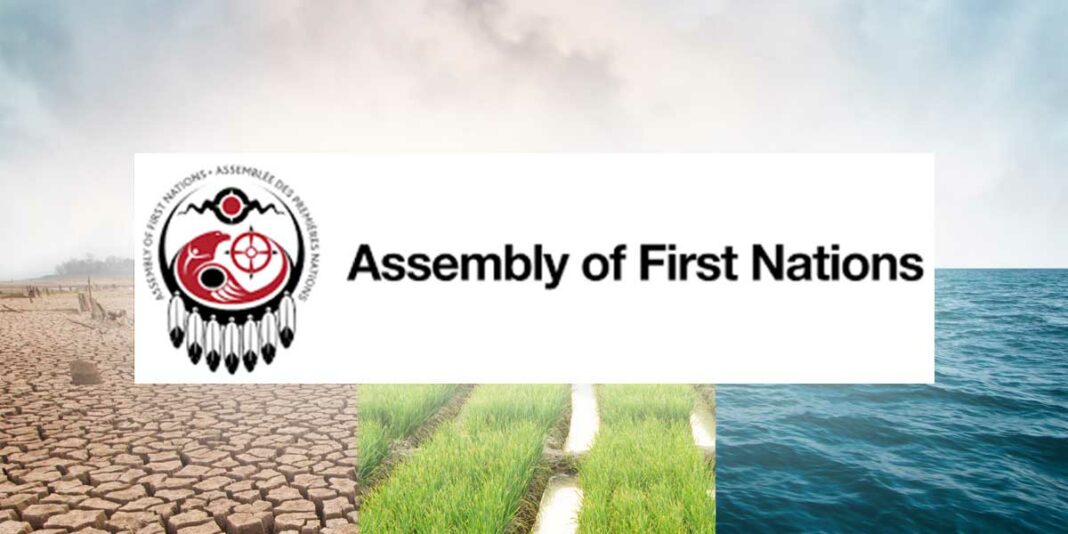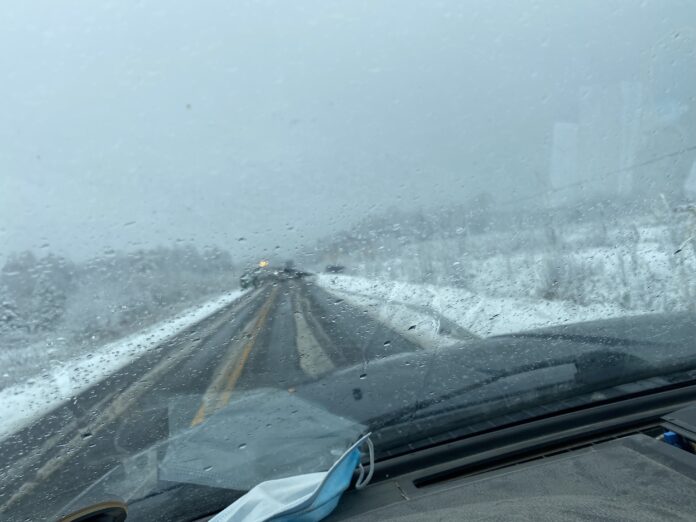CANADA—In July 2019, the Assembly of First Nations (AFN), the national political organization of First Nations and their on-reserve and off-reserve citizens, declared a First Nations Climate Emergency. The AFN has been leading climate change discussions with the First Nations-In-Assembly, a membership of 634 First Nations, since 2016.
Resolution 05/2019 mandated the AFN to organize National Climate Gatherings and develop a climate strategy. It was moved by proxy by Jody Wilson for the Osoyoos Indian Band in British Colombia and seconded by Chief Terry Richardson of Papineau First Nation in New Brunswick.
The first National Climate Gathering was held in March 2020 in White Horse, Yukon, on the territory of Ta’an Kwächän and the Kwanlin Dün peoples, to discuss a climate strategy through a ‘First Nation climate lens.’ The second national gathering was held in Fredericton, New Brunswick, on the traditional unceded territory of the Wolastoqiyik, Mi’kmaq and Peskotomuhkati peoples in 2022. The AFN also conducted several national and regional webinars and two national surveys.
The AFNs climate strategy was informed by the expertise of over a thousand First Nations experts, knowledge keepers, leaders, men, women, youth, and 2SLGTBQIA+ peoples from across the country.
The national climate strategy has been discussed at length with the Advisory Council on Climate Action put in place to support the Government of Canada’s commitments under the Paris Agreement, signed in 2016, committing to reducing greenhouse gas emissions by 30 percent below 2005 levels by 2030. The advisory council works with the transportation and built environment sectors.
The seven critical priorities of action outlined in the AFN’s national climate strategy include addressing capacity needs to support First Nations governance and their role as climate leaders ensuring First Nations self-sufficiency in food, water, and energy; equipping First Nations with the ability to mitigate, prevent and respond to and recover from all emergencies; and closing infrastructure gaps; leverage the First Nations climate lens to reform federal, provincial, and territorial legislation, regulation, policy and programs.
The AFN’s national climate strategy emphasizes that First Nations are “inseparable from the lands, waters and air.”
“All of our water and all of our land are impacted by the climate crisis. It is manmade. So, we have to come up with these solutions, and it has to be Indigenous-led,” said Ms. Wilson.
In July 2023, the AFN passed resolution 36/2023, Urgent and Transformative Climate Action through the AFN National Climate Strategy, endorsing the AFN National Climate Strategy and reaffirming the declaration of a First Nations Climate Emergency from Resolution 05/2019.
Resolution 36/2023 calls for “A recognition that the climate crisis constitutes a state of emergency for our lands, waters, air, ice, animals and peoples; Local, national, and international communities, governments, organizations, and movements to safeguard the inherent, Treaty and constitutionally protected rights of First Nations, respect First Nations knowledge systems and uphold Treaties and other constructive arrangements between First Nations and the Crown.”
The urgent and transformative action through the AFN national climate strategy also calls on the federal government to compensate First Nations with new or additional land for any land that First Nations may lose to climate change.
The Elders’ statement of the Advisory Committee on Climate Action and the Environment is a call to action: “…We, therefore, insist on an immediate end to the destruction and desecration of the sacred elements of life based on the human obligation to care for the Land and future generations.”






